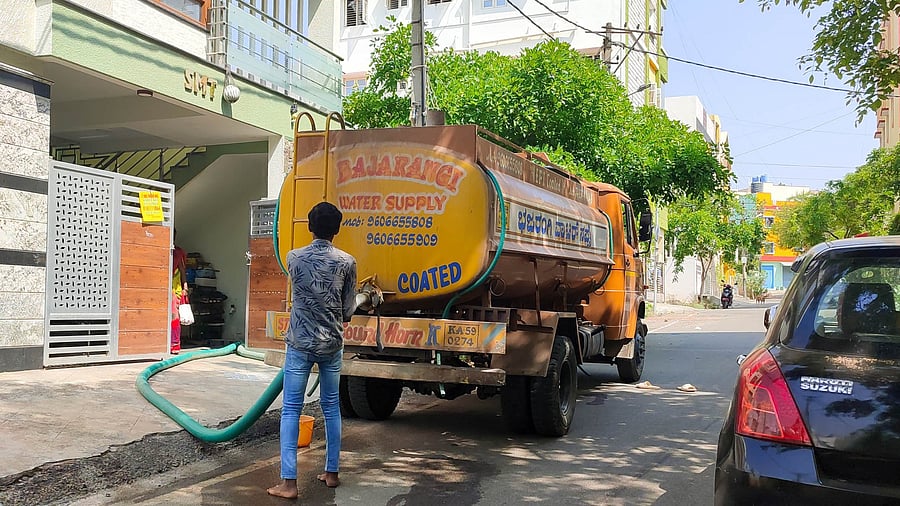
BWSSB says residents can either call the BBMP or the BWSSB helpline if tankers overcharge.
Credit: DH PHOTO/ B H Shivakumar
Aiming to divert the available Cauvery water to areas that urgently require water, the Bangalore Water Supply and Sewerage Board (BWSSB) has announced a 20 per cent cut in water supply to bulk consumers across the city.
The officials, who held a meeting with the bulk consumers, opined that the cut was necessary given the crisis the city is witnessing.
“There is an acute shortage in the city and considering the well-being of the 1.4 crore population of the city, it is only reasonable to cut down the water supply to these bulk consumers and reallocate to areas that are facing a shortage of drinking water,” said BWSSB Chairman Dr Ramprasat Manohar V.
BWSSB has categorised those establishments using over two crore litres a day as bulk consumers. There are 38 such bulk users in the city who presently consume a total of 1,765 million litres per month.
“This amounts to 59 Million Litres a Day (MLD) and by cutting 20 per cent, we will be able to save at least 10 MLD a day. This can be reallocated to meet the needs of the urban slums and the poor,” Manohar explained.
However, the cutdown will be done in a phased manner from March 15 and, by April 15, a total 20 per cent cutdown would be achieved.
However, though there are three hospitals in the city– Nimhans, Victoria Hospital and Command Hospital, that are bulk consumers – the authorities have decided to relax the order for them, considering that they cater to medical emergencies.
Hindustan Aeronautics Limited (HAL), Biocon Private Limited, Air Force stations, Bangalore University, Railways, and Indian Institute of Science (IISc) are among the few establishments that will bear the brunt.
